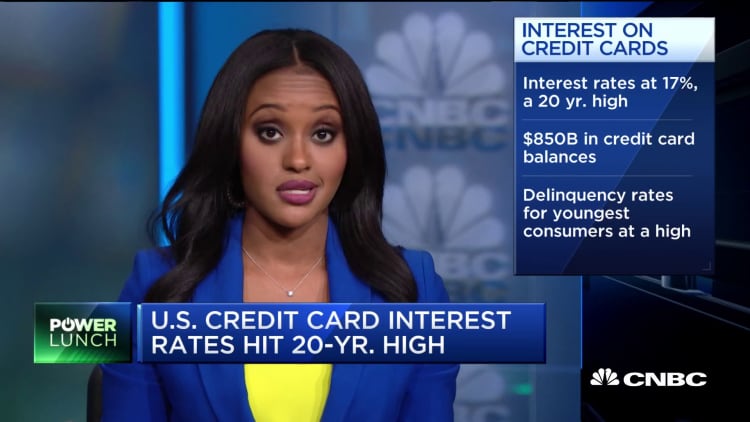For some Canadian credit card holders, dreams do come true.
J.P. Morgan Chase Bank has decided to forgive the outstanding debt of its credit card holders there, according to a spokeswoman for the firm. That includes the Amazon.ca Rewards Visa and the Marriott Rewards Premier Visa branded cards.
The U.S. bank decided to exit the Canadian credit card market last year. The affected accounts were closed by March 2018. Now, to complete the departure, the bank said it is also wiping out any outstanding balances.
Chase declined to discuss the reasons behind the move, or the amount of debt they were writing off.
"I haven't seen this happen before," said Matt Schulz, chief industry analyst at CompareCards.
The company may have decided that just forgiving the debt was an easier, cleaner and faster way to be done with the cards rather than selling the debts to a third party, he said.
Still, if you're one of the credit card holders affected, you should take some deliberate steps.

Double-check any notification you receive
Start with calling the bank to make sure any notice you receive is real.
"There's so many scams out there," Schulz said. "It's hard to tell a legitimate email from a phishing email or fake email."
Fraudsters will use unusual situations like this to take money from unsuspecting people, he said.
If you live in the U.S. and you receive a call notifying you that your credit card balance has been forgiven, you also should be on high alert. "You're probably being scammed," Schulz said.
Don't share any personal information via phone or email, and contact your bank to verify whether an offer is valid.
Keep documentation of debt forgiveness
If you're a Chase credit card holder whose debt has truly been forgiven, you still want to be vigilant.
Hold on to the notification you received for at least six months and keep an eye on that account and your credit report, Schulz said.
"The last thing you want is to be told that you don't have to pay and then have to pay and have it show up on your credit report," Schulz said.
More from Personal Finance:
Here's one easy way to pay less to your credit card company
Most Americans would give up social media to erase credit card debt
Younger generations say 'I don't' to high-cost engagement rings
Still, those affected have reason to cheer, and likely so does Chase, Schulz said.
"I think that the good will that they might engender is worth whatever losses they have to write off," Schulz said.
Most Canadians — 58% — pay off their credit card balances every month, according to the Canadian Bankers Association. Of those who do not pay off their balances monthly, 47% pay more than the minimum payment and 15% pay it off entirely most months, according to the research.
U.S. credit card balances totaled $848 billion in the first quarter, down from $870 billion for the previous quarter, according to data from the New York Federal Reserve. Credit card delinquency rates have been rising, the Fed's research found, as younger borrowers enter the market.
The average credit card balance in the U.S. is $6,354, according to Experian.


